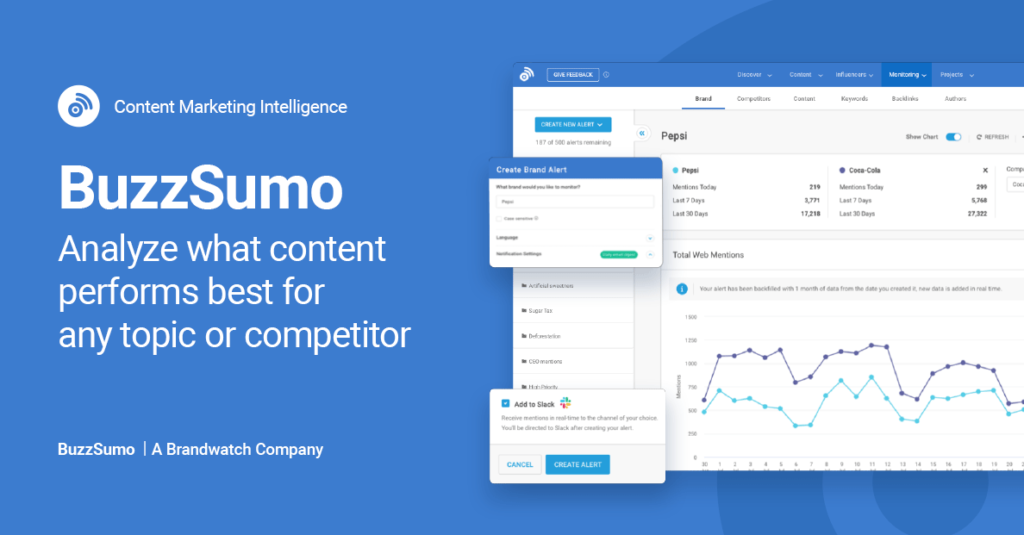
There are various AI technologies available for content creation that can help automate activities, improve efficiency, and boost the overall effectiveness of your content strategy. Here are some popular AI technologies for content production in the content marketing and digital marketing fields:
Grammarly

Grammarly is an AI-powered writing aid that helps improve grammar, spelling, punctuation, and general writing quality. It can be used to refine and polish your work before posting it.
Alex Shevchenko, Max Lytvyn, and Dmytro Lider established Grammarly in 2009. Grammarly began as a tool to help non-native English speakers improve their writing skills. The creators had issues communicating in English and wanted to build a solution to help others overcome similar obstacles. The company’s initial product, published in 2012, was an online grammar checker. It used natural language processing and machine learning methods to discover and correct grammatical problems in written text. Grammarly swiftly gained popularity and a large user base due to its accuracy and efficacy in enhancing writing quality.
Grammarly debuted its browser extension in 2013, extending its reach to consumers across multiple platforms. The plugin works in conjunction with common online browsers such as Google Chrome, Firefox, and Safari to provide real-time grammar and spelling suggestions while users enter various websites.
Grammarly has continued to improve its offerings over the years, introducing additional tools such as a plagiarism checker, tone detector, and so on. Grammarly has developed at a breakneck pace. Millions of users worldwide, including individuals, students, professionals, and corporations, have flocked to it.
Grammarly is regarded as one of the top content marketing tools for the reasons listed below:
- Grammarly’s comprehensive grammar and spelling checks ensure that your material is error-free, boosting its professionalism and readability.
- It provides advice on how to enhance your sentence structure, vocabulary, and writing style. You may improve the overall quality of your material to make it more engaging and enticing to your target audience.
- It finds and highlights problems automatically, allowing for speedy repairs. This saves time and allows you to concentrate on other parts of content generation and promotion.
- Grammarly’s premium version features an SEO tool that aids in the optimization of your content for search engines. It recommends changes to boost keyword density, meta descriptions, and overall readability, which increases the likelihood of your content appearing higher in search engine results.
In addition to basic grammar and spelling checks, Grammarly offers advanced features such as:
- Tone and Style Analysis
- Plagiarism Checker
- Vocabulary Enhancement
- Writing Insights and Statistics
BuzzSumo:

BuzzSumo analyses content performance and discovers popular topics in your business using artificial intelligence. It gives you information on the most shared material, major influencers, and current themes, allowing you to develop more interesting and shareable content.
BuzzSumo allows consumers to discover material performing well on social media sites. It allows users to examine their competitors’ content strategies. By entering a competitor’s website or social media profile, customers can obtain vital information regarding their most shared material, top-performing subjects, and influential authors in their sector. BuzzSumo measures and analyzes content trends in real-time. It provides information on topics that are gaining popularity and allows users to stay up-to-date on the newest trends in their field.
James Blackwell and Henley Wing established BuzzSumo in 2012. BuzzSumo was created in response to the growing need for businesses and marketers to comprehend the content ecosystem and detect hot digital trends. They intended to create a platform that would deliver significant insights to organizations to help them uncover which content was performing effectively and obtain a competitive advantage in their content initiatives.
Its distinct features and capabilities distinguish it from other content marketing platforms on the market at the time. Content marketers found the platform’s capacity to analyze and manage content performance, identify prominent authors, and give real-time trend analysis to be a helpful resource.
BuzzSumo launched the “Influencers” function in 2014, allowing users to locate and connect with major industry influencers.
BuzzSumo added new tools in 2017, such as content alerts and a question analyzer. Users could use content alerts to keep track of specific topics or keywords and be notified when new content is published or discussed.
BuzzSumo was acquired by Brandwatch, a renowned social intelligence company, in 2020 to improve its position in the content marketing and social media analytics areas. It assists organizations in gaining valuable insights, discovering compelling content, identifying influencers, and optimizing their content strategies for improved results.
Wordsmith

Wordsmith is an artificial intelligence-powered natural language synthesis application that can generate content automatically based on predefined templates and data inputs. It’s excellent for sending personalized emails, writing product descriptions, and creating other repetitive content.
Wordsmith’s major goal is to create personalized and dynamic content at scale. It may generate a variety of content formats, such as reports, articles, summaries, product descriptions, and more. By employing NLG technology, Wordsmith assists organizations in streamlining content development, reducing manual processes, and delivering consistent and high-quality material.
The following are some of the advantages of utilizing Wordsmith in content marketing:
- Scalability: Wordsmith enables organizations to swiftly and efficiently generate massive volumes of personalized content. This scalability is especially important when information must be modified for individual consumers or specific segments. Wordsmith guarantees that text remains consistent throughout iterations. It follows specified norms, styles, and brand voice, resulting in content that is consistent and on-brand.
- Personalization: By combining user-specific data, Wordsmith enables the generation of highly personalized content. It can change the content dynamically based on variables such as user preferences, demographic information, or behavioral data.
- Savings in Time and Money: By automating content generation, Wordsmith saves time and money on manual content creation. It liberates precious resources that can be used for other marketing efforts.
- Data-driven Insights: By constructing narratives from complex datasets, Wordsmith may provide insights into data patterns and trends. Businesses can benefit from this by gaining important insights and making data-driven decisions. Automated Insights’ Wordsmith is an AI-powered natural language generation (NLG) product. Robbie Allen, the founder of Automated Insights, initially launched it in 2007 to automate the process of generating written narratives from structured data.
Wordsmith is an AI-powered natural language generation (NLG) product created by Automated Insights. It was first proposed in 2007 by Robbie Allen, the founder of Automated Insights, to automate the process of generating written narratives from structured data.
The North Carolina Technology Association named Automated Insights “Innovator of the Year” in 2010.
In 2014, Automated Insights announced a collaboration with The Associated Press (AP) to automate the generation of news articles using Wordsmith. This collaboration was a watershed moment for both Automated Insights and the NLG sector as a whole.
In 2015, Automated Insights got a large investment from Vista Equity Partners, propelling Wordsmith’s growth and development even further. The money allowed the company to improve its technology, broaden its customer base, and investigate new industry applications.
Wordsmith is still a major participant in the NLG market, covering a variety of industries like banking, e-commerce, sports, business intelligence, and others. Its sophisticated AI algorithms and customizable features make it an invaluable tool for automating content production, creating personalized tales, and extracting insights from structured data.
Apart from these tools, there are a few popular AI tools for content creation that you may find helpful:
- GPT-3 is a solid natural language processing (NLP) model developed by OpenAI that can generate human-like text, summarise content, answer questions, and more.
- Jasper is an AI-powered content production tool that employs GPT-3 to assist users in creating material such as blog pieces, social media postings, and video scripts.
- Writesonic is another AI-powered writing tool that lets users create high-quality material for blogs, advertisements, social media, and other platforms. It makes material that matches the user’s preferred tone and style by combining GPT-3 and other AI models.
- Copy.ai is an artificial intelligence-powered writing tool that may assist users in creating marketing copy, ad headlines, product descriptions, and more. It employs a variety of AI algorithms to generate content that is tailored to various marketing channels and objectives.
Conclusion:
Ultimately, the choice of which AI tool to use for content creation depends on your specific needs and preferences. It’s a good idea to try out a few different tools and see which one works best for you.



